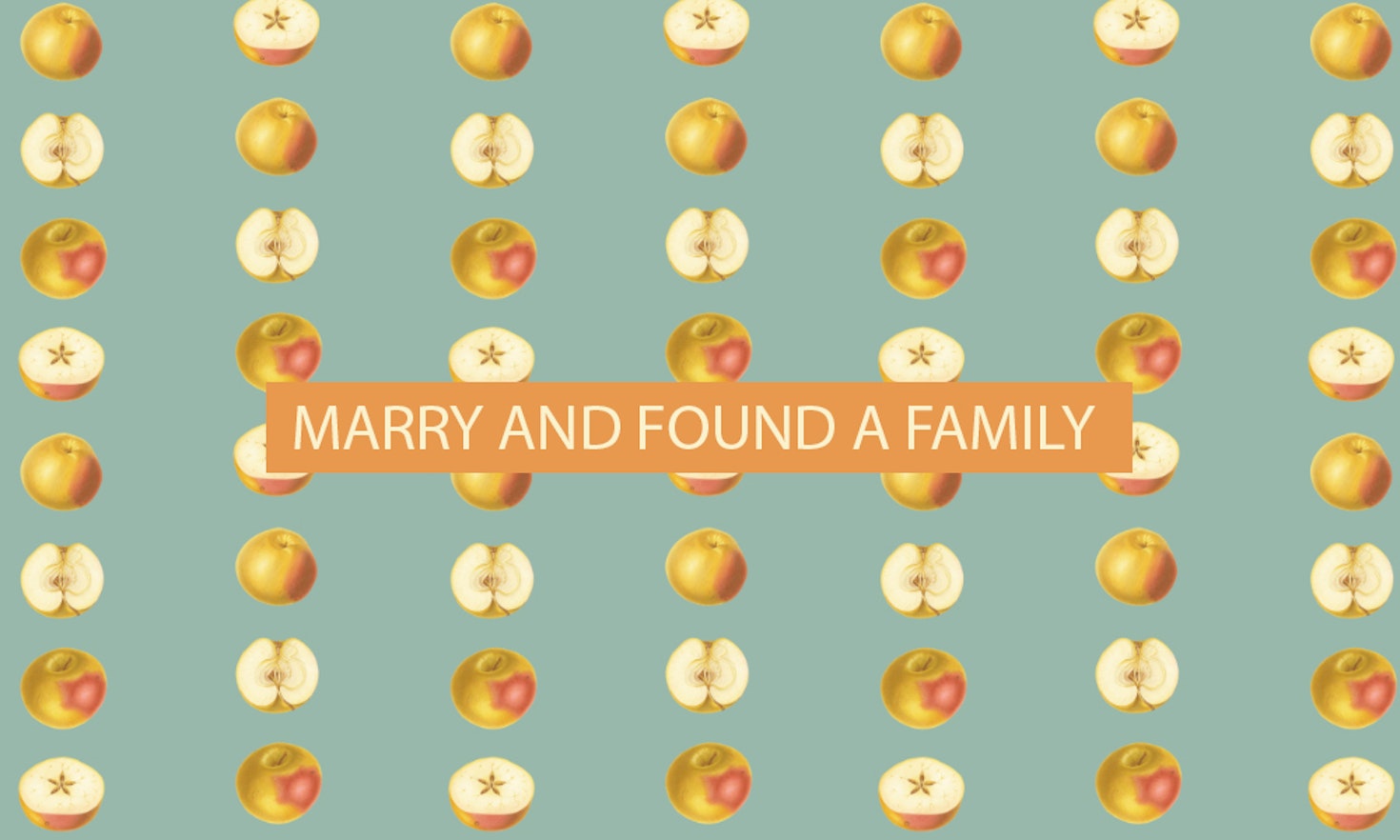The 9th of all EU-r Rights: marriage, founding a family and how the Charter contributes

Imagine this: You want to found a family with your beloved husband but he dies at the tender age of 30. In order to still establish a family you want to use his sperm to instigate fertility treatment. However, your home country’s law does not allow you to use the sperm because your husband did not give his written consent before he died. The dilemma can be solved by invoking EU law and exporting the sperm to another Member State.
A surreal story? Not really, this is the story of Ms Diane Blood, decided before the UK courts in the Nineties. Admittedly, it was not the Charter that resolved her dilemma but the mechanisms of EU common market law.[1] And one has to stress that family law is an area predominantly in the hands of the Member States which is why the EU is rather agnostic when it comes to family and marriage.[2] But let us dig a bit deeper.
The Charter right in action
The region of Tyrol in Austria has a traditional and catholic reputation, less so than that of the Netherlands. So what happens if a gay Dutch couple that got married many years ago moves to Tyrol, lives there for years and then requests to have their marriage re-confirmed under Austrian law despite the fact that, at that time Austria only offered registered partnerships to gay couples? The case was decided in 2014 before the Austrian Constitutional Court: it confirmed that EU law does not force Member States to liberalise their family law systems.[3]
But, yes, EU law does come with the obligation to recognise marriages as they were concluded under foreign law. This was acknowledged at the beginning of 2019 by the Constitutional Court in Lithuania who had to decide the value of a marriage concluded between a Lithuanian man who had married a same-sex citizen of the Republic of Belarus in the Kingdom of Denmark.[4]
There are 6 EU Member States that neither offer same-sex partnerships nor marriages for gay couples.[5] While Article 9 of the Charter does not require such Member States to provide, in their national law, for the institution of marriage between persons of the same sex, it does indeed lead to an “obligation to recognise such marriages, concluded in another Member State” so that such persons can “exercise the rights they enjoy under EU law.”[6]
What do the constitutions of the Member States say?
Most constitutions explicitly establish a right to marry. The wording of many constitutions limits marriage to a union of two persons of opposite sex. This is the case in Bulgaria, Croatia, Hungary, Lithuania, Poland, Slovakia and Spain.[7] Some constitutions explicitly require that both spouses have equal rights as is the case in Estonia, Italy, Lithuania, Portugal, Romania, Slovenia and Spain.[8]
In contrast to the right to marry, the right to found a family is hardly explictly recognised in the constitutions – Cyprus[9] and Portugal[10], being the exceptions rather than the rule. And in the constitutions of certain Western European countries, neither a right to marry nor a right to found a family is provided.[11]
When it comes to the concept of “family”, the constitutions of Ireland, Estonia, Greece and Lithuania give special prominence to this basic building block of society. It is described as “fundamental to the preservation and growth of society”[12] or even as “moral institution possessing inalienable and imprescriptible rights, antecedent and superior to all positive law”[13]. The Hungarian and the Greek constitutions promote families with many children[14], others stress the protection of mothers[15] and Ireland’s constitution pushes for a specific form of work-family balance.[16]
At the same time the constitutions in Italy[17] and Ireland[18] limit the concept of family to situations where there is a married couple – a link that is absent from the EU Charter which establishes two independent rights in its own Article 9: “The right to marry and the right to found a family shall be guaranteed in accordance with the national laws governing the exercise of these rights.”[19]
So what?
Admittedly, Article 9 of the Charter has so far, not played much of a role before national and the EU courts. This is because family and marriage are not determined by EU legislation. However, in the context of the cross-border enforcement of divorces or parental responsibilities, EU legislation has a certain relevance. The same is the case in the area of migration, where for instance, the Family Reunification Directive instructs Member States in the event of a polygamous marriage, not to “authorise the family reunification of a further spouse”.[20]
Therefore, the potential of Article 9 is not to be underrated. After all, this article was prominently quoted by the European Court of Human Rights (ECtHR) to point to a trend in Europe: whereas the ‘old’ European Convention on Human Rights (ECHR) applying to all Member States of the big Council of Europe describes in Article 12 marriage as a union between man and woman, the ‘new’ Charter of the smaller EU is phrased in a gender neutral language. Taking this into account, the ECtHR concluded shortly after the entry into force of the Charter that it would no longer consider that the right to marry “must in all circumstances be limited to marriage between two persons of the opposite sex”. [21] What can we learn from this? Even a little used Charter right can be of Pan-European relevance!
Interested in knowing more? Well, here you are: ‘All EU-r rights‘, stay tuned!
 |
Gabriel N. Toggenburg is an Honorary Professor for European Union and Human Rights Law at the University of Graz, Austria. He worked as a Senior Researcher for Eurac Research in Bolzano/Bozen (Italy) from 1998 to 2008. Since 2009, he has been working for the European Union. All views expressed are his own and cannot be attributed to his current or former employers. His blog series “All EU-r rights” published on EUreka! aims at making the EU Charter of Fundamental Rights better known. He is grateful for the honour to have every blog entry introduced by a piece of art by Miloladesign. An annotated list of all Charter rights is available here. |
[1] R v Human Fertilisation and Embryology Authority, Ex p Blood, case 2 All ER 687. Ms Blood not only won the legal battle but even succeeded in conceiving two children – Liam and Joel – in a Brussels clinic. However, her legal troubles did not stop here as this news article reports.
[2] Gabriel N. Toggenburg, Das (angebliche) Menschenbild der Europäischen Union: vom Paradoxon der EU Kritik und anderen Unschärfen, in Der Wert des menschlichen Lebens im 21.Jahrhundert oder Zu den Grenzen menschlicher Verfügungsmacht, Waidhofen 2010, Wissenschaftliche Reihe der EALIZ, 99-119. Note that the first draft of Article 9 went far beyond its current wording, stating for instance that “The Union shall ensure the legal, economic and social protection of the family” (see Charter 4123/1/00 Rev 1 Convent 5 as of 15.2.2000). This wording was dropped as it was seen as assuming legislative competences that the EU does not hold.
[3] Austrian Constitutional Court, case B166/2013.
[4] Lithuanian Constitutional Court, case No. 16/2016. The Court followed the line as developed by the EU Court in the well-known Coman case (CJEU, case C-673/16, judgement of 5.6.2018). Arguably the Lithuanian Constitutional Court went even further than the CJEU given that the CJEU required that the EU citizen concerned “has made use of his freedom of movement” by moving to the country not only to marry but to take there a “genuine residence” (see para 45 of the Coman judgement).
[5] These are: Bulgaria, Latvia, Lithuania, Poland, Romania and Slovakia. See for an interactive map on LGTBI rights across the EU27 here.
[6] CJEU, case C-673/16, para. 40. Note that the Coman case was decided upon a request for a preliminary ruling from the Romanian Constitutional court. For earlier CJEU case law in this context see Gabriel N. Toggenburg, LGTB go Luxembourg: Lesbian, Gay, Bisexual and Transgender Rights before the European Court of Justice, in European Law Reporter, 5(2008), 174-185.
[7] Art. 46(1) of the Bulgarian, Art. 62 of the Croatian, Art. L(1) of the Hungarian, Art. 38 of the Lithuanian, Art. 18 of the Polish, Art. 41(1) of the Slovak and Section 32(1) of the Spanish constitution.
[8] Art. 27 of the Estonian, Art. 29 of the Italian, Art. 38 of the Lithuanian, Art. 36 (3) of the Portuguese, Art. 48(1) of the Romanian, Art. 53 of the Slovenian, Section 32 (1) of the Spanish constitution.
[9] Art. 22(1) of the constitution of Cyprus.
[10] Art. 36 of the Portuguese constitution.
[11] See the constitutions of Denmark, Finland, France, Malta, the Netherlands and Sweden.
[12] Art. 27 of the Estonian constitution. Same also in Art. 21(1) of the Greek constitution.
[13] Art. 41.1.1. of the Irish constitution.
[14] The Hungarian constitution states that “Hungary shall support the commitment to have children”. See Art. L (2) of the Hungarian constitution. Families with many children find special recognition in Art. 21(2) of the Greek constitution.
[15] Mothers are object of special protection in the Czech Republic were pregnant women are guaranteed special care and protection in employment (Art. 32(2) of the Czech constitution) or in Germany where the constitution establishes that “every mother shall be entitled to the protection and care of the community” (Art. 6(4) of the German constitution).
[16] “The State recognises that by her life within the home, woman gives to the State a support without which the common good cannot be achieved. The State shall, therefore, endeavour to ensure that mothers shall not be obliged by economic necessity to engage in labour to the neglect of their duties at home”. See Art. 41.2.1. and 41.2.2. of the Irish constitution.
[17] Art. 29 of the Italian constitution.
[18] Art. 41.3.1. of the Irish constitution.
[19] Compare this rather ‘national’ wording with the rather ‘European’ wording of the first draft referred to in footnote 2.
[20] Art. 4(4) of the Council Directive 2003/86/EC of 22 September 2003 on the right to family reunification.
[21] ECtHR, case Schalck and Kopf v. Austria, application 30141/04, para. 61, judgment of 24.6.2010.
Citation
This content is licensed under a Creative Commons Attribution 4.0 International license except for third-party materials or where otherwise noted.

Power-sharing, ethnic quotas and ‘Others’: ‘Opportunistic alignment' as a strategy to overcome exclusion? Evidence from South Tyrol and Bosnia Herzegovina
 Arianna Piacentini
Arianna Piacentini
The (weak) role of the Italian Parliament in the management of the health crisis
 Sara Parolari
Sara Parolari
Rule of Law in the Western Balkans: Between honesty and government control
 Letizia Storchi - Lo Spiegone
Letizia Storchi - Lo Spiegone
